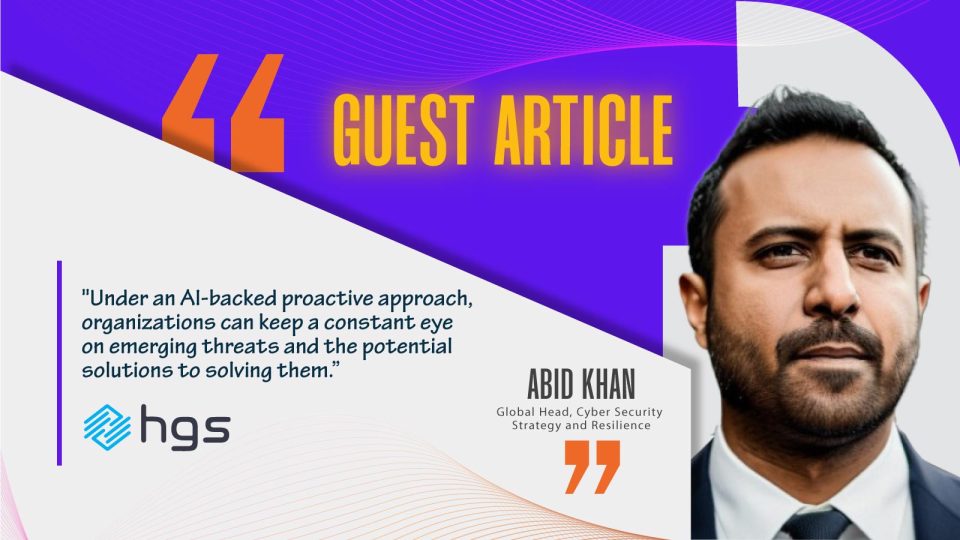The global cybersecurity workforce grew by 12.6% between 2022 and 2023, a significant year-over-year climb for any industry, but the talent gap is still far from filled. According to the World Economic Forum, four million workers are needed worldwide in the cybersecurity industry, and with the ongoing growth potential of artificial intelligence, this shortage leaves companies vulnerable to the ever-evolving threat landscape.
The rapid digital transformation across industries has heightened the need for robust cybersecurity measures. Yet, the pool of qualified cybersecurity talent remains small, while the competition to attract and retain these professionals grows stronger.
So, how can organizations bridge this growing gap and strengthen their cybersecurity practices? The answer lies not in replacing human talent, but in strategically leveraging artificial intelligence (AI) to empower existing cybersecurity teams. By viewing AI as a force multiplier, companies can unlock a range of benefits that make their security teams more efficient, proactive, and insightful, ultimately enhancing overall security posture.
Also Read: AI Integration Roadmap Planning for Cybersecurity Experts
The Talent Crunch
The cybersecurity talent shortage isn’t new in the industry. For years, the demand for skilled professionals has outpaced supply, an imbalance driven by factors such as the increasing sophistication of cyberattacks and the evolving regulatory landscape. Attracting and retaining top cybersecurity talent is a fierce competition for organizations.
The number of tasks associated with cybersecurity can be overwhelming for organizations. Security teams often battle with manual processes such as data analysis, log file review, drawn-out assessments, and other time-consuming tasks. These leave them with less time for strategic planning – which is where human expertise and judgment are irreplaceable. With these tasks offloaded to AI, human cybersecurity professionals are freed to focus on more strategic processes. By handling the ‘heavy lifting’ of data processing and preliminary analysis, AI empowers security professionals to apply their skills where they are most effective, enhancing the overall security framework.
AI not only benefits the organization by enabling a more proactive security process but also offers a more attractive work environment for security professionals. By taking away the heavy burden of tedious and time-consuming tasks, AI allows them to utilize their skills for higher-level problem-solving and decision-making, ultimately leading to higher job satisfaction and improved retention rates.
Also Read: Will AI Replace or Enhance Cybersecurity Engineering?
From Reactive to Proactive
The traditional approach to cybersecurity has largely been reactive. Security teams typically wait for an attack to occur before identifying and responding to it. This reactive approach leaves organizations vulnerable since even the most well-designed defenses can be breached. The creation and implementation of security tools, protocols, and policies are also usually set in stone and then not revisited. AI offers a solution for companies looking to be more proactive in their cybersecurity approaches.
AI-powered tools can analyze vast amounts of data and quickly comb through it to identify any changes or patterns that might indicate an attack in the making. This allows security teams to take a proactive stance, mitigating risks before they translate into full-blown breaches. By identifying these potential threats early on, security teams can take preventative measures ahead of time to ensure cyber safety. Under an AI-backed proactive approach, organizations can keep a constant eye on emerging threats and the potential solutions to solving them.
Making Smarter Decisions Faster
Every second an attack goes undetected allows attackers to steal data, disrupt operations, and cause significant damage. In the fast-paced world of cybersecurity, timely and informed decision-making is essential. AI provides real-time insights that enhance the efficiency and effectiveness of cybersecurity. By integrating AI into workflows, cybersecurity teams can automate responses to threats, streamline security operations, and ensure that their strategies are based on the most current data.
These insights are based on the continuous analysis of data collected from various sources, which allows security teams to make informed decisions quickly and efficiently during critical incidents
Also Read: Cybersecurity Solutions to Safeguard against Financial Services Cyber Threats
Building a Collaborative Future
The global cybersecurity talent gap poses a significant challenge, but AI offers a promising solution. By automating routine tasks, enhancing threat detection, and enabling smarter decision-making, AI can empower cybersecurity teams to do more with less.
As companies adopt AI-powered tools, they not only bolster their defense mechanisms but also create a more attractive and fulfilling work environment for cybersecurity professionals. In this way, AI is not just a tool for managing threats but a strategic asset in building a resilient cybersecurity workforce. While the technology is powerful, it’s important to emphasize that AI is not intended to replace human cybersecurity professionals. Although AI expertly automates tasks, analyzes data, and identifies patterns, it lacks the critical thinking skills, judgment, and creativity that are essential for effective cybersecurity practices.
And, while AI continues to show promise, organizations must proceed with caution for their internal AI development initiatives which could be exposed to data poisoning, cyberattacks, AI model interference, and Intellectual Property (IP) leakage. Ongoing vigilance and proactive security measures are key to balancing the vast promise and real risks associated with AI.
The future of cybersecurity lies in a collaborative approach where AI empowers human expertise. By establishing strong frameworks and fostering collaboration with human expertise, organizations can realize AI’s transformative potential while effectively bridging the talent gap, ensuring robust protection against evolving threats, and optimizing workforce efficiency and expertise.
[To share your insights with us as part of editorial or sponsored content, please write to psen@itechseries.com]


